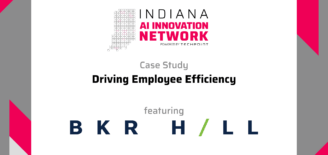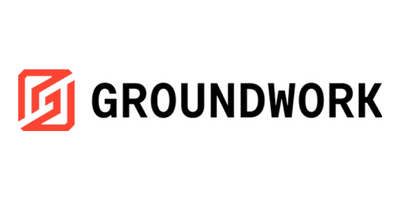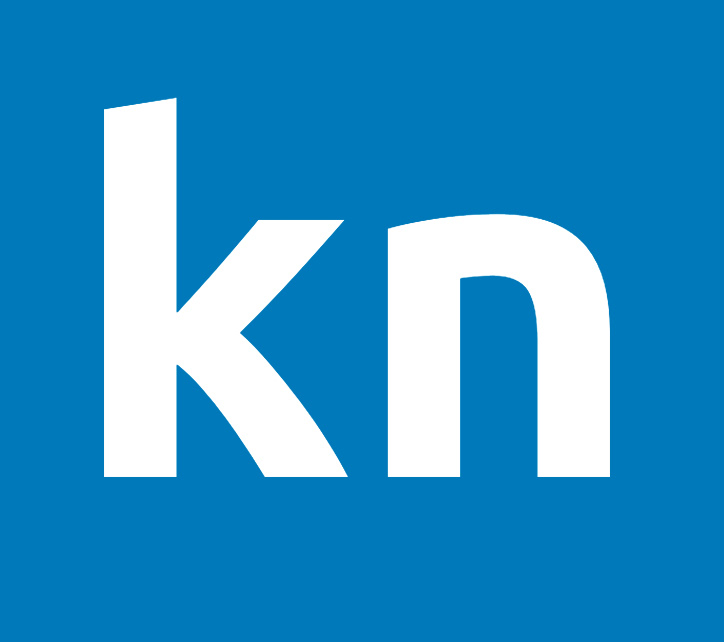Pros and Cons of Working for a Startup
Working for a tech startup can be exhilarating. Motivation, innovation, and creativity surround you, and people who genuinely care about the product and company you’re building are beside you.
Tech startups can be fun and fulfilling places to work, but they may not be right for everyone. Depending on the type of work environment you enjoy or where you’re at in your career, for you, working at a startup could be energizing or draining. It’s important to consider whether or not it’s the right fit for you before diving in head first.
We gathered real-life feedback from the Indiana tech community about the pros and cons of working for a startup. Take a look at what Indiana tech workers had to say about the benefits and drawbacks of startup life.
Pros of Working for a Startup
For some people, working at a startup is a reason to get up in the morning. The excitement, the growth, the drive… these are elements of a thrilling job. When asked about the pros of working for a startup, most focused on a few key benefits:
Opportunity for Growth
The potential for growth is ripe at a startup. You can learn new things, try on different job function hats, so to speak, or even secure a senior position.
“What I love about working at a tech startup is the amount of opportunity for growth,” says Abbi King, business development representative at Zylo. “Because a startup is still in the growth stage, there is a ton of opportunity to grow personally and professionally.”
“You get to experience a lot of different skill sets,” says Jennifer Denney, founder of Elevated Marketing Solutions. “A startup requires individuals to be nimble and learn quickly. This can greatly improve your flexibility in being able to wear multiple hats.”
Similarly, Nicki Laycoax, customer success manager, says she “loves working with Groundwork because I love to see things grow. Where we are this month is further than we were last month.”
The opportunity for growth can also mean accelerating your career in terms of a senior position. “In a startup, you have the ability to ‘jump the line’ in seniority,” says Jenny Vance, revenue enablement consultant. “Promotions are based on achievement, not seniority.”
“There’s so much learning!” said Mario Oviedo, solutions engineer for Swiftly. “There’s always something new—new people, new development, new benefits, new products. This means more opportunity for personal and professional growth for you.”
Collaboration & Teamwork
Another primary benefit of working for a startup is the ability to collaborate. “Everything is cross-functional by nature in a startup,” says Clare Maher, sr. product marketing manager at Ironclad, Inc. “Small startups encourage intentionality and collaboration because everything is relatively visible across the organization.”
Vance agrees. “Startups provide visibility into other departments and functional teams. You have the ability to work cross-functionally with those teams on major initiatives. Leadership is more accessible as there is typically less bureaucracy in startups. You’re able to learn from leaders and interact with entrepreneurial founders.”
Sometimes, collaboration means wearing multiple hats to meet large goals. “In a startup, everyone is responsible for everything! No one is exempt from work. There’s no ‘that’s not my job’. Everyone works on selling, everyone works in execution, everyone is in customer service,” says Oviedo.
“One of the best things about working for a startup is working with a small team and becoming connected with your colleagues,” says Austin Boardman, digital marketing analyst for Labcorp. The result of close collaboration is improved relationships, communication, and support across the team.
Autonomy & Impact
Another great aspect of working at a startup is that you usually have more autonomy than in a traditional corporate or established working environment.
“Working in a startup means tons of autonomy that can make for an exciting workplace where you’re immersed in a culture of caring,” says Douglas Karr, vice president at Highbridge Consultants. “Every day you understand your purpose and that new challenges await you. It’s an addictive rollercoaster ride that’s difficult to walk away from.”
With autonomy comes the great opportunity to make an impact. “There’s less red tape when trying to implement change,” says Vance. “You also have the ability to step up and take ownership of an initiative, even as an individual contributor.”
“Another benefit of working for a startup is having the feeling of making a difference because you are,” says Denney. “Startups need everyone on the ship to be rowing in the same direction so your individual contribution matters.”
“You have a chance to make a massive impact on the culture and business trajectory,” says David K. Inman, chief revenue officer of Kennected. “It feels incredible to build something.”
Cons of Working for a Startup
While there are definitely pros to working for a startup, there are also drawbacks. The start of something new can be messy and complicated; it requires sacrifices that you may or may not be willing to make.
When asked, here are some of the most common cons of working for a startup from the Indiana tech community:
Too Much Change & Stress
It’s no surprise that a lot of change comes with startup life. But how much change is too much?
“Things change frequently as teams adapt to new challenges and learn from processes that aren’t necessarily working,” says King. Startups are always trying new things to see what will work best.
On top of new challenges, your goals and objectives can change frequently. “In a startup, the future may not be as clearly mapped out,” says Inman. “Roles and responsibilities can change unexpectedly and abruptly. Stress levels tend to be higher, and things can break a lot while new processes are being tested out and implemented.”
With this, comes a lot of stress. “Work can get overwhelming in a startup with the workload,” says Boardman. In a startup, you’re wearing multiple hats which means a heavy workload you have to manage. “You have less administrative support unilaterally, which means every team member is self-managing a massive amount of administration,” says Vance.
Work/life balance is a hard thing to achieve in startup life. “It’s easy to get sucked up in the ‘one more thing’ game in a startup. It’s never-ending and it gets stressful,” says Oviedo.
Lack of Compensation/Benefits
Startups are usually working on a lean budget, even if they are well-funded. That means that compensation and benefits can look different than if you were to work at a more established company.
“Pay and benefits typically aren’t as good compared to a large corporation,” says Boardman. There are typically also fewer benefit options than at other organizations. “Benefits are significantly less valuable overall,” Vance agrees.
A lean budget can mean restrictions on other types of spending as well. “Typically, funding is more limited for things like company events (and even employee salaries)”, says Inman. Some of the fun company-building activities or client events are limited until there’s more money coming through the door.
Risk
One of the top-cited cons of working for a tech startup was the risk associated with it. The risk with the company moving from startup to scaleup, the risk with your career trajectory, and more.
“Startups have a limited timeline. If they fail, you question the sacrifices you made and you have to be comfortable that, in failing, you grew professionally more than you ever would have at a large company,” says Karr. “If they succeed, many employees are left behind because the same people who built the company aren’t often the people who are needed to manage its growth moving forward. More often than not, you’ll also have some hard feelings as you watch upper management that arrived after you get compensated far more than you ever had.”
Many startups offer equity as a benefit to employees to help incentivize them to work for the company and reward them for their work. However, what equity is actually worth in the startup stage can be questionable. “Equity for many employees is no more valuable than a stock grant at a large company,” says Vance. “It sounds very exciting. However, in some cases, it doesn’t end up covering what one has to give up in salary, benefits, or on-target earning (OTE) to have equity. Yes, there are some phenomenal success stories but if we scratch beneath the surface, there are many stories where the outcome isn’t meaningful enough to justify it.”
Vance further adds, “Employees should fairly evaluate it and understand that if they aren’t in the boardroom then they can’t control preference, executive bonuses, and the other elements that waterfall ahead of common shares.”
Other Considerations of Working for a Startup
Before getting a job at a tech startup, it’s important to consider whether it’s something you can and want to do. Working for a startup typically requires sacrifices of time, money, and benefits. You will likely work more hours, may not get paid as well, and could have fewer benefits. These sacrifices can be harder for some people, depending on the circumstances.
A common question is “how old is too old to work for a startup?” Ultimately, it depends on what you are comfortable with. For someone who has a family they’re supporting, startup life might not be the best choice for them because it doesn’t offer the needed security. For someone who is looking to expand their skillsets quickly and get in on the ground floor of something new, startup life could be perfect. Age doesn’t determine who is the best fit; it all comes down to your circumstances and preferences.
When thinking about working for a startup, we do recommend coming prepared with some questions or doing some research before you sign on the dotted line:
- What does the complete compensation package look like (including benefits) and how do you see that changing over time? What can I expect in the future?
- How well funded is the startup? What are the plans for the next funding round?
- What employee options do you offer for startup equity? Is it competitive?
- What have been your most notable successes as a startup so far? What kind of traction have you achieved in your primary market?
- Why should I consider working here versus a different position that can offer more security?
The answers to these questions will help you determine if working for a startup is right for you. It will also help you determine whether there is a viable path for continued funding and growth as not every startup will succeed.
Working for a tech startup can be exciting and rewarding, but they’re also a lot of hard work. It’s important to know what you’re getting into and make a decision that’s right for you. Get feedback before you make the jump; it will be incredibly valuable before making a decision.







